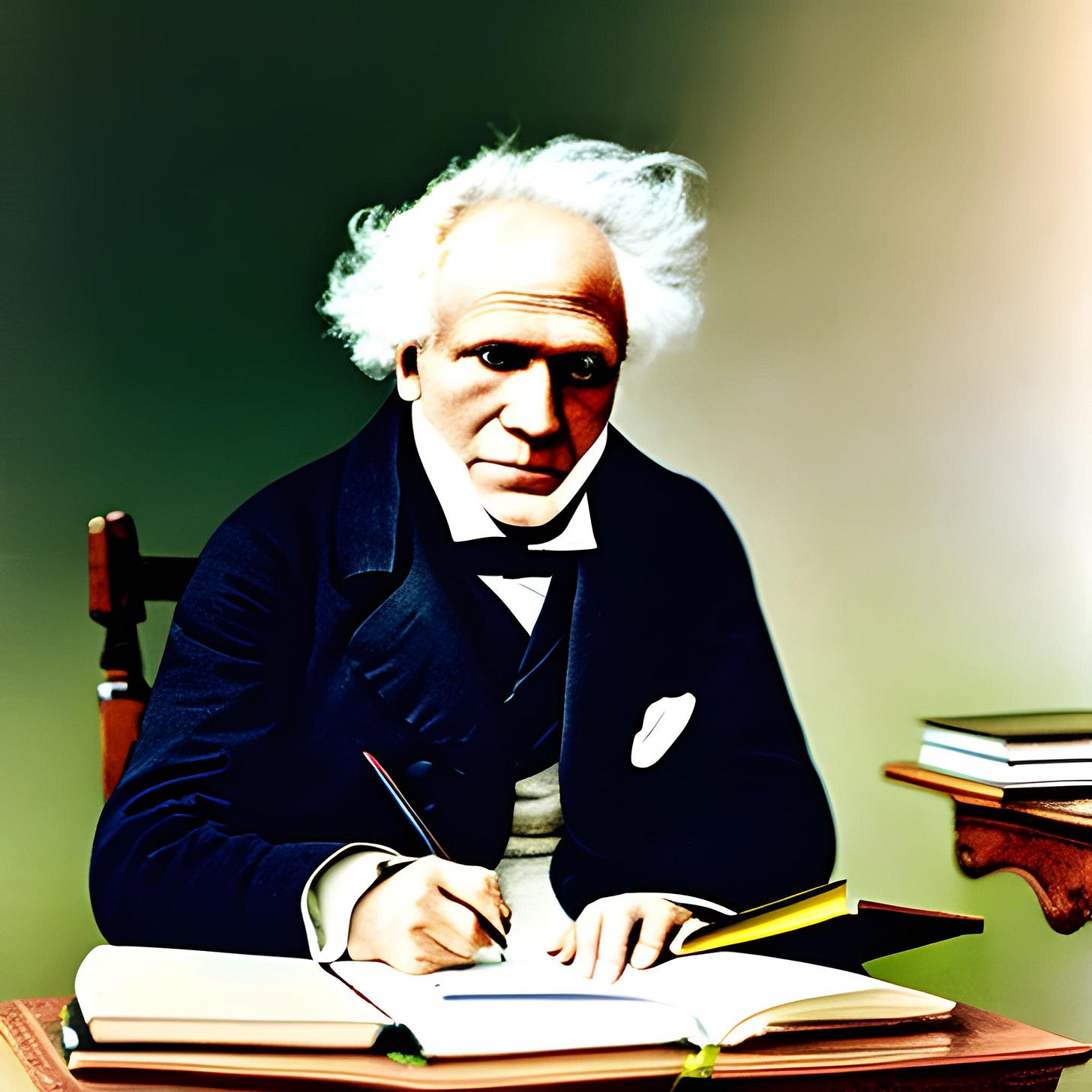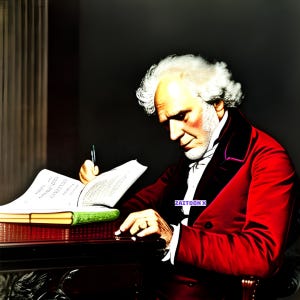Lessons from Schopenhauer on Effective Writing
Mastering the Art of Communication Through Clear and Concise Prose
Often considered one of the great philosophers of the 19th century, Schopenhauer is known for his insights into human nature, ethics, and aesthetics. Despite his focus on philosophy, he was also a celebrated writer in his own right, known for the simplicity and clarity of his writing style.
I recently had the pleasure of reading Schopenhauer's ‘On Authorship and Style’, a 7000-word essay on the art of writing. While I suspect he would not approve of my writing this post, I have not been so inspired by philosophical writing in a long while. I just couldn't pass on this impulse to put keyboard stroke to screen.
Here are the key lessons on writing that I gained from his essay:
Rule 0 : Have Something To Say
Before you even think of writing, you must be sure you have something to say. This is rule zero of writing, according to Schopenhauer. Be careful about this. You might think you have something to say, but in reality, you might not. You might just be regurgitating (like I am, with this post), or you might just be seeking recognition. That is not the point of writing.
“…a good author who is rich in ideas soon gains the reader’s credit of having really and truly something to say”.
Rule 1 : Be Original
Try your hardest to be original. If someone else has done it, leave it alone. Schopenhauer criticizes those who imitate others, stating,
“It is only the writer who takes the material on which he writes direct out of his own head that is worth reading”.
Rule 2 : Respect Your Reader
Respect their time, respect their intellect. Schopenhauer emphasizes the importance of respecting the reader by not wasting their time with empty or irrelevant content,
“The author is cheating the reader as soon as he writes for the sake of filling up paper”.
Writers should prioritize quality over quantity and ensure that their writing is meaningful and valuable to the reader.
Rule 3 : Write Because You Must
Not because you have to.
“Writing for money and preservation of copyright are, at bottom, the ruin of literature. It is only the man who writes absolutely for the sake of the subject that writes anything worth writing.”
Schopenhauer highlights the importance of writing from a genuine passion for the subject matter rather than solely for monetary gain or fame. He believes that true literary works are born out of a genuine desire to convey meaningful ideas.
Rule 4 : Titles Matter
Schopenhauer stresses the importance of titles in his essay, stating
“What the address is to a letter, the title should be to a book".
In other words, titles serve as an important means of identifying and distinguishing a book from others. A well-crafted title should accurately reflect the content of the book and entice readers to delve further into its pages.
Rule 5 : Keep It Simple
Throughout the essay, Schopenhauer's criticizes writers who rely on complicated language to mask their lack of substance. He argues that true genius lies in simplicity and clear communication, stating that
"simplicity has always been looked upon as a token, not only of truth, but also of genius".
He even goes so far as to call the use of many and complicated words "the infallible sign of mediocrity" and an attempt to "hide their poverty of thought under a superfluity of words".
Instead, Schopenhauer believes that a writer should
“if possible, think like a great mind, he should speak the same language as every other person".
In line with this belief, he emphasizes the importance of concise and clear language in effective communication, quoting Voltaire's statement that
"adjective is the enemy of the noun".
The biggest lesson I took away from Schopenhauer's essay was the importance of avoiding adjectives in writing. I used to think that the use of adjectives would make my writing sound more professional, but I now understand that it can actually make it seem forced and insincere. Since reading the essay, I have made a conscious effort to simplify my writing and remove unnecessary adjectives in order to achieve greater clarity and authenticity.
By combining these rules, we can see the overarching theme of valuing substance, clarity, and authenticity in writing. Schopenhauer's essay emphasizes that writing is not just a mere exercise in self-expression, but rather a form of art that serves the purpose of effective communication. He advocates for a clear, concise, and simple writing that respects the reader's time and intellect. In his view, the writer's ultimate goal should be to communicate their ideas astutely and effectively, while avoiding unnecessary embellishments or complexity. Therefore, the key lesson from his essay is that writers should aim to convey their message in a straightforward and efficient manner.




Solid rule set for writing. How did you stumble on Schopenhauer? He’s not exactly a popular writer these days
This is a really good post and very well written, thank you for it.